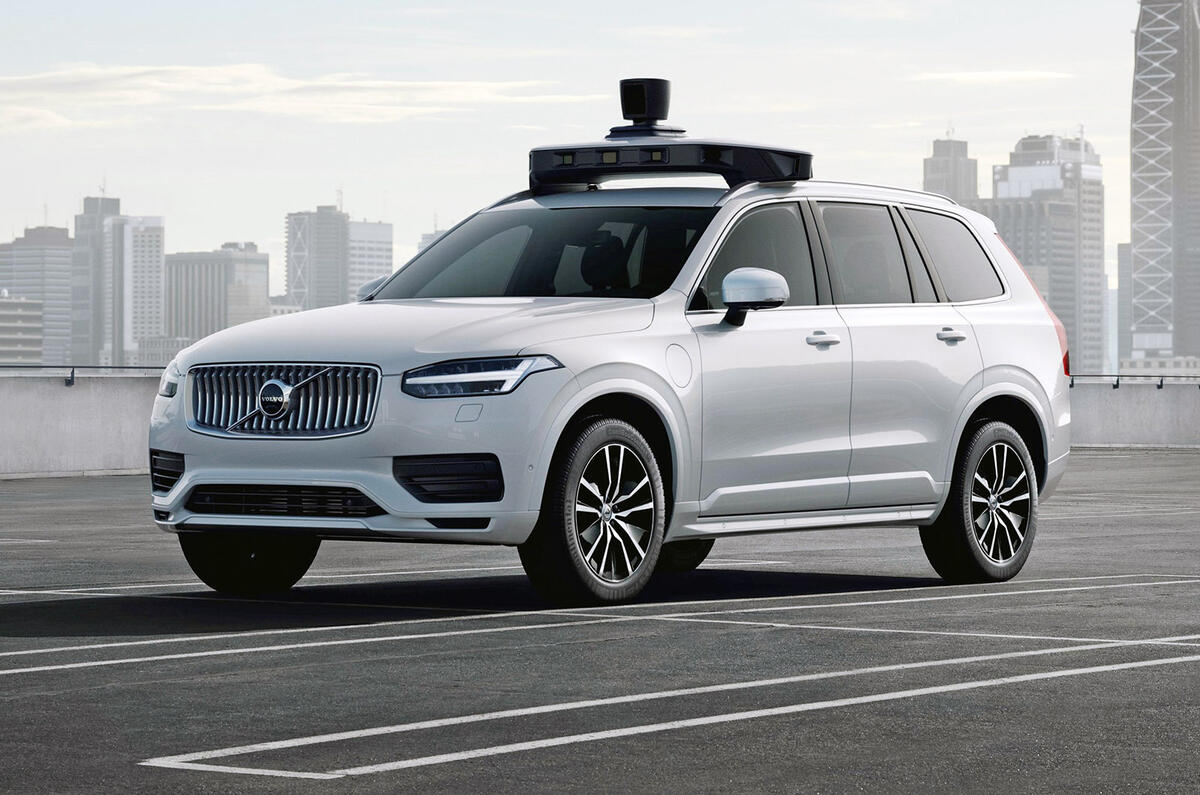Volvo has been one of the leading proponents of the industry’s long-term quest for fully autonomous cars. But now it has become the latest to dial back its overall ambition and to clarify how it views the technology developing.
The next XC90, due in 2022, will be fitted with the advanced hardware and software needed to allow for eyes-off and hands-off automated driving on highways where conditions allow. What’s made clear by Volvo is that it will be up to the system to decide if the road conditions are safe to be driven in that way, and it will never be a system that means a car is autonomous 100% of the time.
Volvo boss Håkan Samuelsson said: “The cars will have functionality that we will improve every year – step by step, to certain speeds, and then being able to work on more roads and at higher speeds.” He described an end game of the technology allowing for eyes-off and hands-off driving on motorways where the environment is able to be better controlled – and predicted – by the technology, rather than the more chaotic nature of city streets.
Perhaps the perceived rise of autonomous cars has been an issue of semantics. The term ‘autonomous cars’ causes people to think of cars driving independently of their drivers. Samuelsson says Volvo’s technology would be perceived as autonomous by customers “whatever it is called” yet there is a “need to think carefully about what we call it”.
Volvo has also sold Uber XC90s to use for its own autonomous car development and Samuelsson describes these as permanently autonomous “robo taxis”, whereas Volvos fitted with automated technology will always be cars where the driver is expected to be in control when the system decides autonomous driving is no longer safe.
The trouble that Uber and others are having in getting this technology working confirms what many thought when talk of autonomous cars became all the rage in the industry seven or eight years ago: that even if the technology hurdles could be overcome, the legislative, infrastructure and even moral concerns would be too great, given the random and diverse nature of so many road networks around the world.
Motorway driving is probably as controlled an environment as you can get – with certain caveats and conditional changes, of course – so don’t expect Volvo to be the last to provide a clearer and more logical route to automated driving that can actually be realised.
READ MORE
Volvo: PHEV sales surge will help meet CO2 targets
From dependable to disruptive: the reinvention of Volvo
Volvo confirms electric version of next XC90









Join the debate
Add your comment
I totally agree xxxx.
Manufacturers rant on as if there is actually a demand for autonomy.
And Autocar meekly repeat these stories as if they themselves wish them to be true.
Has anyone ever seen self-parking being used? It is rubbish. And how emasculating is it to not be able to park your own car?
Drop it
Been having these dumb never ending stories for years regarding self driving cars, can't we just drop these articles until a system is devised that costs less than £50k and can go from Heathrow to Milton Keynes train station whilst having less than 6 crashes on the way.
Having said that at least this one, from the SWEDISH firm, is back tracking and telling us it isn't going to happen anytime soon.